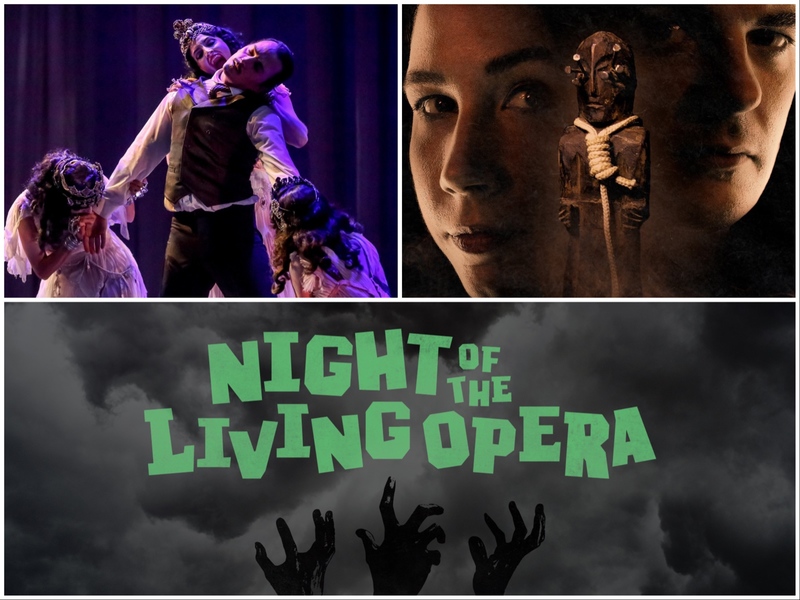"The Brothers Size," by Tarell Alvin McCraney, is a story much bigger than itself.
Merging modern African American characters with gods from West African mythology, the play resonates with the power to cross continents and centuries. Conflicts as old as civilization itself are played out in contemporary scenes that range from raw, primal emotions, to lyric poetry, to naturalistic conversation. The entire production is a stunning accomplishment for the performers, director Marti Gobel and Milwaukee Chamber Theatre.
Audiences will immediately recognize that "The Brothers Size" is not a typical night at the theater. Master percussionist Jahmés Tony Finlayson leads you into the Studio Theatre, singing, drumming and playing the kalimba. Audience members are welcome to sit directly on the stage. A mystical fog envelopes the space. Branches hang from the ceiling, gathering other audience members under a tree to listen to a story that, according to the program, lives in the "distant present."
Finalyson, channeling the Yoruba god Egungun, summons the collective spirits on the ancestral dead, as he drums on a collection of found objects, from garbage cans to pots and pans. Then the three gods enter (Travis A. Knight, Andrew Muwonge and Marques Causey), shirtless, performing a powerful step-dance that hints at their separate characters while also uniting them.
The action of the play is narrated by the characters, who frequently speak directly to the audience – another distinct storytelling style – to reinforce that the performance is part parable. It is an exploration of the forces of Ogun (god of metal and fire), his brother Oshoosi (a divine hunter, associated with the human struggle for survival) and Elegba (the guardian of the crossroads of life, also a mischievous spirit who brings chaos, while trying to teach humans a lesson).
The ancient and divine collide with a recognizable present as the story unfolds around Ogun’s auto shop, a small garage wedged between a wall of graffiti and a back alley dumpster (compelling and inventive scenic design by Madelyn Yee). Ogun’s younger brother Oshoosi has just been released from jail and is trying to find his way on the outside.
His former cellmate, Elegba, has also served his time and continuously lures Oshoosi away from his brother’s serious lifestyle of early mornings and hard work toward an easier life of stolen cars, willing women and dreamy nights on the Louisiana Bayou. There is love, anger, resentment and frustration all around. There are also melancholy stories of the past informing the present, of lost loves, profound sadness, abandonment and despair.
As Ogun, Travis A. Knight is strong and formidable, both physically and emotionally. His brother’s keeper, Knight illustrates viscerally the joy, responsibility and burden of family. His panic-filled nightmare about failing to keep Oshoosi safe is chilling. His story of a sad girl he once knew is mesmerizing. And his rage at bearing the responsibility for all his brother’s mistakes fills the theatre.
Andrew Muwonge’s Oshoosi is the battleground for the play. He is immature but sweet, rebellious but gullible, reformed but broken. A smart aleck in search of his true self, when Muwonge’s eyes drift away from home to peer out the window at temptation, we know that when standing at the crossroads, he’s only got a 50/50 chance of choosing the right path. And just like Ogun, our hearts break watching the struggle.
As the trickster Elegba, Marques Causey shines. The slightest of the three actors, he exudes a sly and dangerous quality, like a predator that is easy to underestimate. Causey has brought harrowing stories to vibrant life on that stage previously in the productions "The Ballad of Emmet Till" and "Luna Gale." Here he shows his maturity as an actor and his gift for storytelling, particularly while describing run-ins with the racist local law enforcement. Chameleon-like, he transforms from friend to foe, dancing around Oshoosi like a practiced con closing in on a mark.
The individual achievements of the performers are great, but the even larger accomplishment is the cohesive vision of director Marti Gobel. A fierce and smart performer in her own right, Gobel literally choreographs "The Brothers Size" in a way that feels striking and magical, with a story that’s both culturally specific and painfully universal.
I am already eagerly anticipating Gobel’s next opportunity to bring more of Tarell Alvin McCraney’s Brother/Sister plays to Milwaukee stages.







